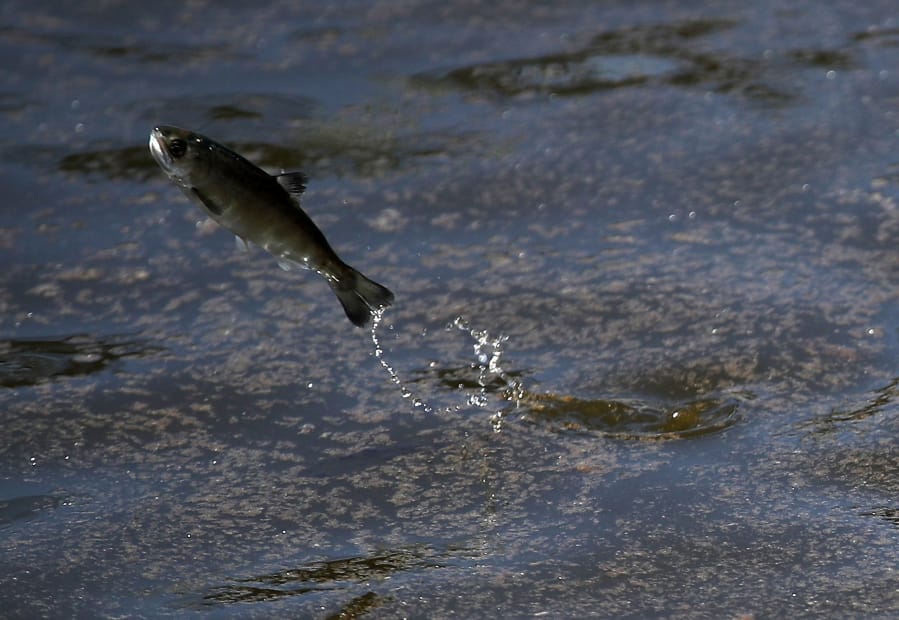LOS ANGELES — Federal officials suppressed a lengthy environmental document that details how one of California’s unique salmon runs would be imperiled by Trump administration plans to deliver more water to Central Valley farms.
The July 1 assessment, obtained by the Los Angeles Times, outlines how proposed changes in government water operations would harm several species protected by the Endangered Species Act, including perilously low populations of winter-run salmon, as well as steelhead trout and killer whales, which feed on salmon.
But the 1,123-page document was never released.
Two days after federal scientists submitted their review, called a biological opinion, a regional fisheries official pulled the document and replaced the team that wrote it with a new group tasked with revising it, as The Times reported in July.
Had the opinion been adopted and released, it would have interfered with efforts to ramp up irrigation deliveries to powerful California farm interests with ties to the Trump administration. The revision, critics say, is another example of the administration intervening to weaken environmental protections and reverse the findings of federal scientists.
In the report, the National Marine Fisheries Service unequivocally concludes that increasing water deliveries would likely jeopardize the continued existence of endangered winter-run Chinook salmon, threatened spring-run Chinook and threatened Central Valley steelhead, as well as endangered Southern Resident killer whales that dine on salmon.
The proposed changes in California water operations “will produce multiple stressors” on winter-run salmon “that are expected to reduce survival and the overall fitness of individuals,” the agency wrote.
Lethal temperatures
Harmful impacts include warm river temperatures lethal to fish eggs and newly hatched salmon; low flows in the Sacramento River and more salmon deaths at the giant government pumps that send supplies south from the Sacramento-San Joaquin Delta.
“Winter-run Chinook salmon are particularly important among California’s salmon runs because they exhibit a life-history strategy found nowhere else in the world,” the scientists noted.
Adults leave the ocean and migrate upstream in the winter and early spring. During the summer, they historically spawned in cold, spring-fed rivers and streams in Northern California. But the fish lost access to those spawning grounds after the federal government constructed Shasta and Keswick dams on the upper Sacramento River in the 1940s.
That, coupled with the destruction of flood plains and other habitat, sent the fabled run on a long downward spiral. Now only a few thousand of them typically return to California every year to swim upstream to spawn below Keswick, which regulates flows out of Shasta.
Despite spending millions of dollars on hatchery operations, fish screens and gravel bed restoration, federal water managers have fallen far short of meeting a long-standing congressional goal of doubling the natural production of anadromous fish in Central Valley rivers and streams.
Of more than 165 species that the marine fisheries agency protects under the Endangered Species Act, California’s winter-run Chinook “is considered one of just nine species that are most at risk of extinction in the near future,” the agency wrote.
The extinction risk has increased since 2007, in part because warm-water releases from Shasta during the state’s severe drought cooked salmon eggs and newly hatched fish. In 2015, 96 percent of the eggs and fry died.
Revision of the July 1 biological opinion is “unquestionably an effort to subvert the best available science,” said Noah Oppenheim, executive director of the Pacific Coast Federation of Fishermen’s Associations, which represents commercial fishermen.
“Literally before our eyes, we’re seeing science suppressed by monied political interests,” he argued.



